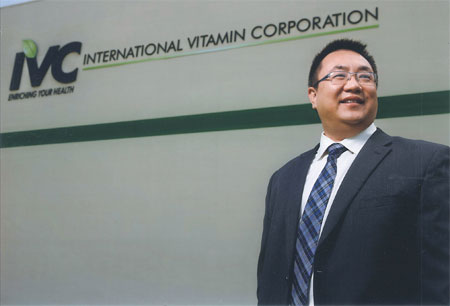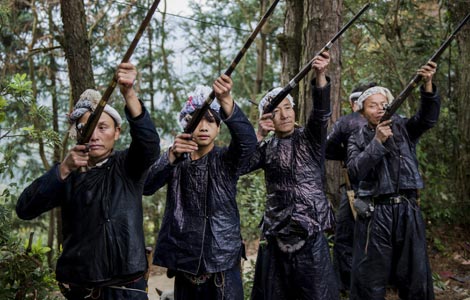Vitamin maker finds new health in New Jersey
Updated: 2013-12-20 13:00
By Liu Lian in New York (China Daily USA)
|
||||||||
|
Steven Dai and six partners acquired the drooping International Vitamin Corp from an American company in 2010 and it is now the second-largest private label dietary supplement business in the United States. Provided to China Daily |
In his office in Freehold, New Jersey, Steven Dai has two display shelves filled with supplement bottles produced by the International Vitamins Corp (IVC), the vitamin and nutritional supplement business that he and six other Chinese investors bought from Inverness Medical Innovations (renamed Alere in July 2010) in 2010.
In the three years since the takeover, IVC has jumped into 2nd place - from previously failing to make the top 20 - in the private label sector, which accounts for roughly 40 percent to 45 percent of the US dietary supplement market. The company now supplies "25 percent of FDMC (food, drug, mass merchant and warehouse club) retailers in the US," Dai said.
FDMC includes chains such as Walmart, Target, Costco, Sam's Club, Walgreens, CVS, RiteAid, and Safeway.
Private label suppliers like IVC are contracted by the retailers to manufacture vitamins, minerals and supplements (VMS) to sell as their own store brands. Compared to well-known vitamin brands such as GNC and Vitamin Shoppe, private labels offer quality options at lower costs, Dai said, which increases interest from recession-stressed consumers.
"We predicted that consumers' enthusiasm for VMC would continue unabated," said Dai, "and we saw great potential in this fast-growing private label sector."
The supplement industry grossed $30 billion in sales in 2011, up nearly 8 percent from the previous year, according to Nutrition Business Journal, an industry trade publication.
Among supplement shoppers, 80 percent purchased vitamins at a grocery or drug store in the past two years and 67 percent of shoppers always purchase vitamins from grocery or drug stores, according to a 2012 report from research firm Vestcom.
"Investing in the US was an important step for us for two reasons: one is the logistical demands of competing in the US market, including warehousing, transportation and customer service; and the other is acquiring technology and innovation."
Dai recalled the days when investment in China was focused on low-cost manufacturing. Back in the 1980s and 1990s, China was a low-cost labor leader in the world for Western companies.
But with China's rising labor cost and the recent economic slowdown, this was no longer the case. There are now increasing demands on companies to diversify portfolio investments into developed markets, particularly the US, a trend confirmed by a recent Deloitte survey of global, China-focused M&A practitioners that found that acquiring technological best practices remains the main reason for outbound Chinese investment.
"We have enjoyed an annual growth rate of 30 percent to 35 percent since the acquisition and 50 percent of the growth came from innovation," Dai said.
Dai got an MBA at Rutgers University in 2002 and gained industry experience working as an executive in global sourcing for US pharmaceutical firms.
"IVC was not a profit-making branch for the previous owner, which was focused on medical equipment," said Dai. "Over the years the parent company had been reluctant to invest more in technology at IVC. The business was rundown and morale was low.
"We recognized the critical role of innovation in revamping the company," he said. "And have invested heavily in research and product development since the takeover. But innovation is not just picking up the pace of new products, services and market strategies; it also involves creating a dynamic organization that embraces the employees' sense of belonging, passion and individual responsibilities.
"We broke down IVC's long-range company goals further into goals for different departments, and eventually for individual employees," said Dai. "Ultimately, innovation is a very personal exercise, and aligning individual growth with the company's development made everyone feel relevant and connected."
The strategy seems to have worked. Besides the growth in sales, the number of employees at IVC has increased to more than 400 from 200 in the last three years, in contrast to the dire unemployment rate in the US.
"When we made a plan of creating our own pharmaceutical warehouse within six to 10 months during the first year, many people thought it impossible, as it typically takes two years for American companies to accomplish a project of such a scale," said Dai.
But Dai and his team got it up and running in eight months, enabling employees to reach their productivity goals under the new management. "The fact that we were able to succeed on a very aggressive timeline undoubtedly boosted the employee confidence in the Chinese owners," he said.
All employees of IVC were either retained from the earlier company or hired locally. "I used to joke about being the only Chinese employee in the company," Dai said, "and today we have added two more who are ethnically Chinese: my assistant and an accountant."
As for the future, Dai hopes to expand IVC's West Coast presence and reach more venues in the US market.
"On top of tablets, capsules, softgels and chewables, we are developing new formats such as liquids and powders in order to give consumers a wider range of choices. We are also looking into the market of prescription and over-the-counter medications," he said.
"Eventually, I want to bring IVC to China."
lianliu@chinadailyusa.com
(China Daily USA 12/20/2013 page10)
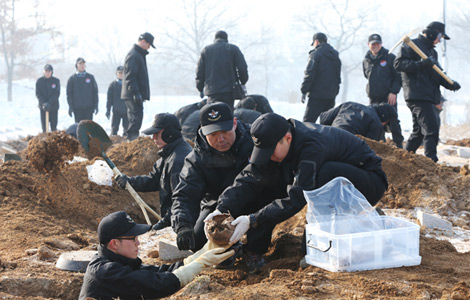
 ROK to return Chinese war dead
ROK to return Chinese war dead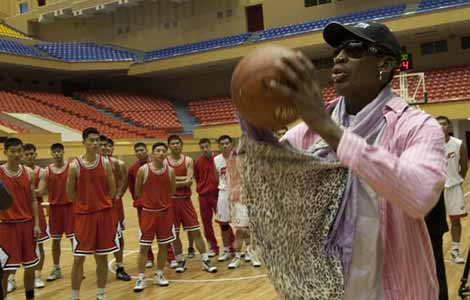
 Rodman trains basketball palyers in DPRK
Rodman trains basketball palyers in DPRK
 New York mulls banning e-cigarettes
New York mulls banning e-cigarettes
 Climbers soar to new heights
Climbers soar to new heights
 Reading China's future through its past
Reading China's future through its past
 Yanukovich offers Ukraine protesters nothing
Yanukovich offers Ukraine protesters nothing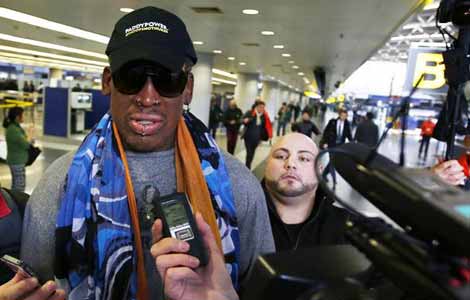
 Former NBA player may coach in DPRK
Former NBA player may coach in DPRK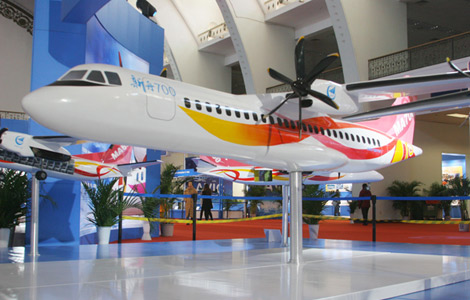
 AVIC unveils plan for next-generation regional aircraft
AVIC unveils plan for next-generation regional aircraft
Most Viewed
Editor's Picks

|

|

|

|

|

|
Today's Top News
Obama nominates Baucus as ambassador to China
Tech bans to be relaxed: US
Chinese blasts Japan's defense move
China rejects US GM corn shipment
FDI enters new structural era
China, US start annual trade talks
New York mulls banning e-cigarettes
Verizon plans more data-request disclosures
US Weekly

|

|
